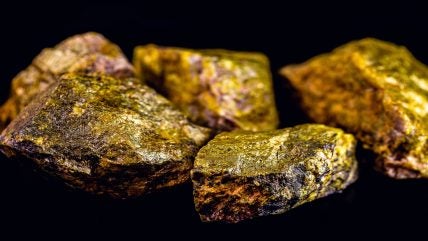
Askari Metals has announced the full acquisition of the Matemanga Uranium Project in the southern part of Tanzania.
The deal was executed through Askari’s wholly owned subsidiary, Infinum Uranium.
Covering an area of around 264km², the project is recognised by the company as a high-priority asset with significant potential for uranium exploration.
The Matemanga Uranium Project is strategically located around 470km south-west of Dar es Salaam, a region known for its uranium-rich geological formations.
The acquisition aligns with Askari Metals’ strategy to expand into uranium exploration as part of its African clean energy focus.
The company has highlighted the proximity of the Matemanga project to other significant uranium deposits, noting its location nearly 70km south-east of the Nyota Uranium Project, which has a resource of 124.6 million pounds (mlb) of contained triuranium octoxide (U3O8).
Furthermore, it is less than 220km south-east of the Kayelekera Uranium Project in Malawi, with a resource of 46.4mlb of contained U3O8.
With an exploration team already in place in Namibia, Askari Metals is well-prepared to undertake high-impact, low-cost exploration campaigns in Tanzania.
Askari Metals managing director Gino D’Anna stated: “The Matemanga Uranium Project represents a significant exploration opportunity for Askari as we expand our exploration strategy to include high-value and in-demand uranium, in line with our clean energy mission.
“We are well positioned to execute high-impact, low-cost exploration campaigns in Tanzania, which is globally renowned as a low-risk, pro-mining jurisdiction which has been significantly under-explored.
“An extensive review of available data by our African exploration team has identified a major radiometric anomaly, spanning 10km by 6km, which has not been further investigated before.
“Our focus is fast-tracking applications at the Matemanga Uranium Project, in close collaboration with our local Tanzanian partners, ahead of initial field sampling and radiometric surveying campaigns at this site.”



